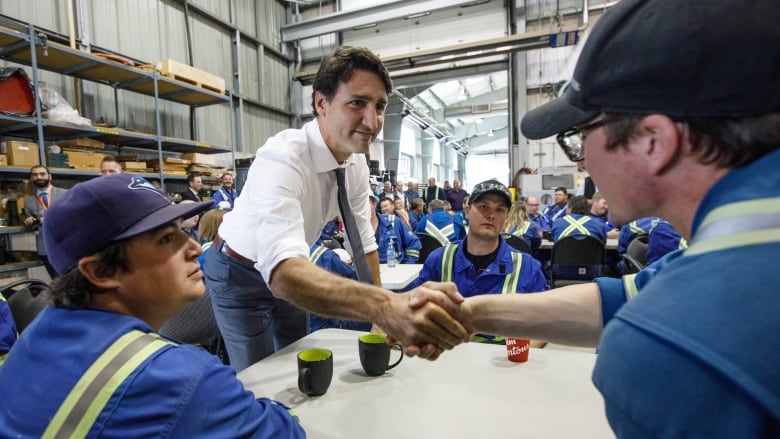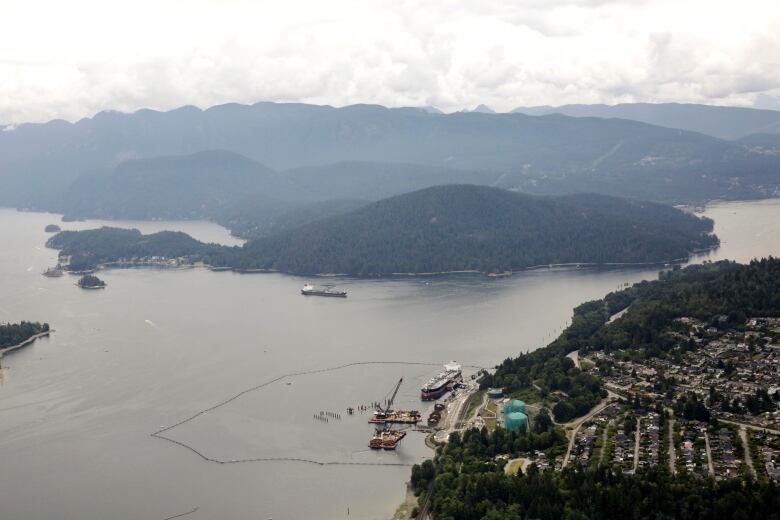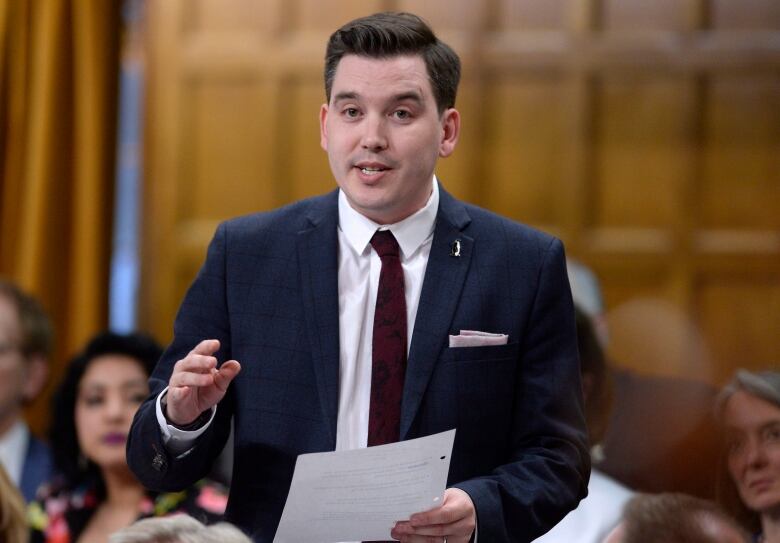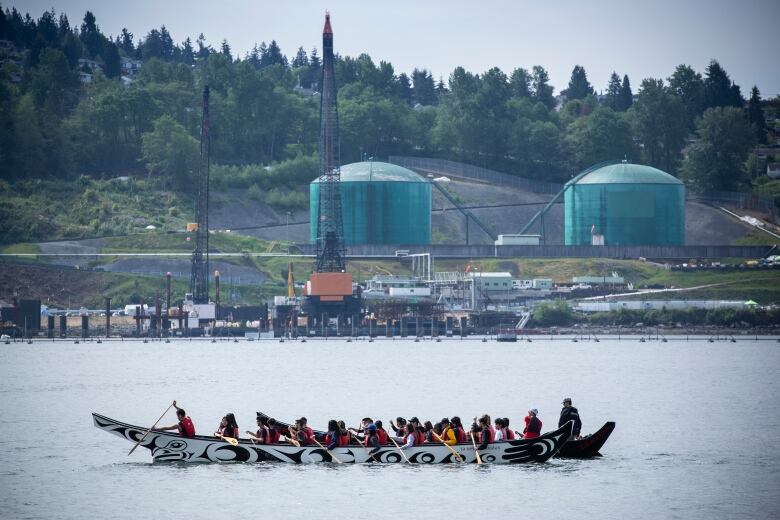Pipeline politics: No easy decisions at Trans Mountain ground zero
Burnaby North-Seymour riding is ground zero for debate on energy, economy climate and First Nations

Political promises Denise Mullen calls them bright "shiny" objects.
The Burnaby resident lives close enough to Westridge Marine Terminal to see the end point of Trans Mountain's proposed pipeline expansion project as she walks her dog.
And when it comes to promises, Mullensays, there are few more attractive gifts in a politician's arsenal than a vow to kill or keep the pipeline that has proven one of the defining issues of the last two federal election cycles.
Mullen, who is director of environment and sustainability of the B.C. Business Council,is in favour of the pipeline.
But speaking for herself, not for her organization, she says she's disappointed with the way the complexpolitics around the pipeline encompassing questions about climate change, energy policy, national economicdirection and both First Nations and inter-provincial relations have been reduced to a simple 'Yes' or 'No' debate.
"I'm frankly frustrated with all the politicians," Mullensays.
She said she wishes politicians, rather the making clear-cut promises, would talk about their intentions without descending into polarization.
"It's a terrible choice among a bad lot. And what frustrates me the most is that there are so many promises that are incomprehensibly large and unfulfillable in any kind of pragmatic way, and yet they are thrown out there and sound bites are created about them."
Swing voters and a pipeline purchase
Mullen's Burnaby North-Seymourriding is considered ground-zero for the debate over the Trans Mountain pipeline expansion, which would twinan existing 1,150-kilometre pipeline from Edmonton to Burrard Inlet to allow the export of diluted bitumen offshore.
The seat spans both parts of Burnaby andNorth Vancouver.

As a result, Trans Mountain's "tank farm" and Simon Fraser University co-exist on the southside of Burrard Inlet, while the homes of more traditionally conservative voters sit on the opposite, northshore alongside theTsleil-Waututh First Nation, whose members have launched multiple court challenges to the pipeline.
The seat swung to the Liberals in 2015, when then-newcomer Terry Beech won a tight three-way contest with 18,742 votes. The NDP'sCarol Baird-Ellan trailed him by about 3,500 votes, with a Conservative challenger less than 1,000 votes behind her.
The Liberals promised in 2015to address climate change and to balance energy needs with environmental protection. And in 2017, Beech was one of two Liberal MPswho voted against a motion in support of the project in the House of Commons.
Baird-Ellan told the CBC she believes many of the voters who lifted Beech to victory were under the belief the Liberals would kill the pipeline.
She feels the government's decision to buy the Trans Mountain pipeline for $4.5 billion in 2018 in order to keep the project alive will play to the benefit of current NDP candidate, Svend Robinson.
"I think a lot of those voters, you could probably describe them as swing voters, they went Liberal because they wanted to defeat the Conservatives and they also wanted to defeat the pipeline," Baird-Ellan says.
"I think a lot of those voters ... feel quite betrayed and I would be surprised if they didn't swing in another direction, and I would expect them to vote NDP."
Interesting even without a pipeline
Robinson's return to politics is yet another factor in a fight that would likely have been one of the most interesting racesin the country even without the pipeline.
The contest was thrown into turmoil early on when the Conservatives dismissed candidate Heather Leung because of previous comments about "perverted homosexual preferences" and pastsupport for conversion therapy.

That history became a flashpoint in a contest that includes both Robinson who was Canada's first openly gay MP and Green candidate AmitaKuttner, who came out as pansexual and gender non-binary in August.
Leung is running as an independent although she still appears on the ballot as a Conservative. She told the CBC she supports the pipeline.
So does Rocky Dong, the People's Party of Canada candidate who is also vying for the seat and who told a CBC radio forum that while he believes climate change is real, "we don't believe human beings are the main factor."
Kuttner, by contrast, is callingfor an end to both pipelines and fracking.
"Canada should be a true climate leader," Kuttner'splatform says. "This means global stewardship, green innovation, community preparedness, practical preparation and not buying pipelines."
The will of constituents
Robinson spent 25 years in Parliament representing Burnaby constituents before bowing out of politics in 2004.
The 67-year-old was a major figure on the frontlines of many of the country's key cultural and legal battles during that time from physician-assisted suicide to the logging of Clayoquot Sound.
He says the Trans Mountain pipeline is just that type of defining issue.

"Poeple who have voted Liberal, Conservative, many of them have said in this election that they're voting on the basis of this issueand they're supporting me because they know that I've taken a strong stand defending the community, standing up against this project," Robinson said in a phone interview.
"It's not just one issue, because many of the people that you speak to who are deeply concerned about the Trans Mountain pipeline issue are also very concerned about the climate crisis."
Beech told the CBC he has tried to respect those opinions while in office, voting against the pipeline in the House becauseon balance during the past five years "the majority of my constituents have been opposed to it."
But he says the Liberals have endeavoured to meet the main concerns of Burnaby North-Seymour residents, which include worries about oil spill response, meeting climate change targets and safety issues near oil storage facilities.
"Our government has done more over the last four years to fight climate change than any government before," he says.
"But we have to remember that if we don't have a strong economy and people feel like they're fallingbehind, then we won't have the social licence to invest to fight climate change and we need to make sure that we get that right."
First Nations consultation critical
It's that type of balancing act Mullen believes the Liberals encountered once they tookoffice and responsibility for a filethat according to an Angus Reid Institute online survey released last month 53 per cent of Canadians want to see completed.
"When you do look at things more detailed, you clearly see that it is not clear. There is a lot of grey and decisions about these kinds of issues are always really, really hard," Mullensays.
"It irritates me when politicians come out and make it seem like their platforms are easy and shiny and 'I'll get her done for you.'"

Beyond the promises of any politician, the pipeline's future also likely depends on Canada's courts. Just last month, the Federal Court of Appeal allowed six challenges to the project to go ahead.
The appeals concentrate on environmental impacts and the Crown's duty to consult with affected First Nations groups, including the Tsleil-Waututh.
While a significant number of First Nations along the pipeline route support the project, the courts have consistently upheld the need for governments to make a genuine attempt toaccommodate Aboriginal rights and concerns.
That doesn't amount to a veto, but it's not a hurdle any party can bypass.
'It's all about trade-offs'
Thesame Angus Reid poll that measured majority support for the pipeline alsofound that 60 per cent of respondents want federal funding invested into renewable energy instead of non-renewable resources.
Mary Hatch wholeheartedly agrees with that half of the survey.
Her Burnaby home also looks out on Burrard Inlet and the Westridge Terminal. She has one of Svend Robinson's signs in her garden.
The expansion of a pipeline is no abstract debatefor the 73-year-old.

Hatch was a victimof a 2007 accident that saw a backhoe rupture a Trans Mountain pipeline carrying crude oil down to the terminal. Her car and her garden were coated.
The incident turned the former teacherinto an activist. She likes Beech personally, but can't get over the purchase of the pipeline.
"Terry has had a lot of pressure put on him and he did vote against (Trans Mountain) I know," she says.
"Even though I think he has done a good job, I can't put my vote there."
Mullen wouldn't reveal where she'll place her vote but suggested that the controversy with Leung had closed the door on one leading contender.
She says she'll hold her nose and consider the remaining options. And the Trans Mountain pipeline expansion won't be her only consideration:
"I'm looking at the whole platform and I'm going to make a bunch of trade-offs but the pipeline itself is not a deciding factor," she says.
"It's all about trade-offs. It's all about balancing and finding a way to satisfy the most number of people who are in the middle. Whooften don't ever speak up. The silent middle who throw up their arms."












_(720p).jpg)


 OFFICIAL HD MUSIC VIDEO.jpg)
.jpg)



























































































